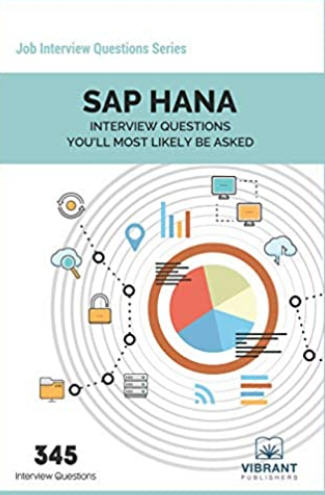One of the key takeaways from this book is the importance of being well-prepared for an interview. The questions included in the book are likely to be asked in a job interview, and having a good understanding of the concepts and terminology related to SAP HANA is crucial. The book can serve as a valuable resource for consultants who want to brush up on their knowledge and ensure they are ready to answer any question that may come their way.
Another important lesson from the book is the need to stay up-to-date with the latest developments in the field. SAP HANA is a constantly evolving technology, and it's essential to stay informed about new features and functionalities. Keeping abreast of industry trends and advancements will help consultants provide the best possible service to their clients and stay ahead of the competition.
Here are a few sample questions and answers from the book:
1. What is SAP HANA?
Answer: SAP HANA is an in-memory, column-oriented, relational database management system that is designed to handle high volumes of transactional and analytical data in real-time. It enables companies to process large amounts of data quickly and efficiently, and to gain valuable insights that can help drive business decisions.
2. What is the difference between row-based and column-based storage?
Answer: In row-based storage, data is stored in rows, with each row representing a single record. In column-based storage, data is stored in columns, with each column representing a single attribute or field. Column-based storage is often used in analytical systems because it allows for faster data retrieval and aggregation.
3. What is an attribute view?
Answer: An attribute view is a type of view that is used to provide a list of attributes or dimensions for a particular set of data. It can be used to create hierarchies, group data, and filter data based on specific attributes. Attribute views are often used in conjunction with other types of views, such as analytic views and calculation views.
4. What is a calculation view?
Answer: A type of view that is used to perform complex calculations and aggregations on data from multiple sources. It can be used to create custom KPIs, perform predictive analytics, and generate reports. Calculation views can be created using a graphical modeling tool or by writing SQL code.
5. What is an information model?
Answer: An information model is a conceptual representation of data. It defines the relationships between data elements and the rules for how data can be manipulated and transformed. Information models can be created using different types of views, such as attribute views, analytic views, and calculation views.
6. When should a customer go for SLT over other replication methods?
Answer: SAP customers
should go for SLT Replication if real-time data and faster implementation
is the business requirement typically for sourcing from SAP ERP systems
into SAP HANA..
| Overall, "SAP HANA Interview Questions You'll Most Likely Be Asked" is a useful resource for SAP HANA consultants who want to prepare for job interviews and stay informed about the latest trends and developments in the field. By studying the questions and answers provided in the book, consultants can gain the knowledge and confidence they need to succeed in their careers. |  |